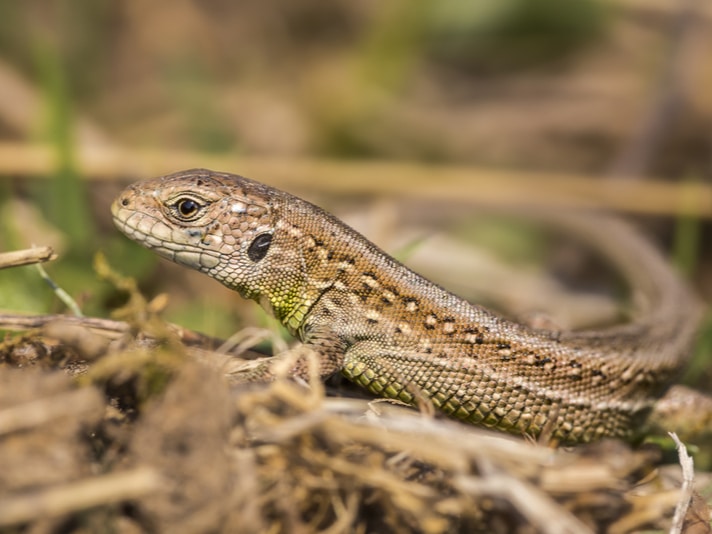The sand lizard is a European protected species and is listed as threatened under UK law.
Tesla has installed fences to keep sand lizards out of its Giga Berlin construction site in Germany, according to Tesla enthusiast Tobias Lindh, who took photographs of the barrier and posted the photos to Twitter.
“The reptile fences are being installed right now at #GigaBerlin,” Lindh tweeted. “Later when it gets warmer, they will search for lizards on that area and move them to a new location.” It is hoped that the fences will keep the lizards from being harmed during construction. The company will also have to relocate any sand lizards found on the construction site.
Tesla is building the Gigafactory on a 300 hectare property in the muddy portion of the forest and it has been a project without controversy. In an effort to mitigate the cutting down of forest, Tesla promised to replant three times as many trees at it cuts down, while protecting the sand lizard, smooth snakes and other animals that live in the forest. The replanting of the trees, however, may be more difficult than initially anticipated.
“It will be difficult to find arable land on this scale” Brandenburg BUND Conservation Officer Axel Heinzel-Berndt told taz.de. “But it is also conceivable that, instead, species-poor pine forest is converted into mixed forest.”
The reptile fences are being installed right now at #GigaBerlin. So if there are any lizards they can’t run on the construction site. Later when it gets warmer, they will search for lizards on that area and move them to a new location. pic.twitter.com/B8cWTDRmXE
— Tobias Lindh (@tobilindh) March 9, 2020
The company is working with experts to determine what trees should be replanted in the area with the stipulation that the trees be beneficial to bats and sand lizards.
The sand lizard (Lacerta agilis) is widely distributed throughout western Asia and Europe. It is a small lizard that is captive bred, with offspring often released to bolster wild populations in the United Kingdom, where they are rare.



